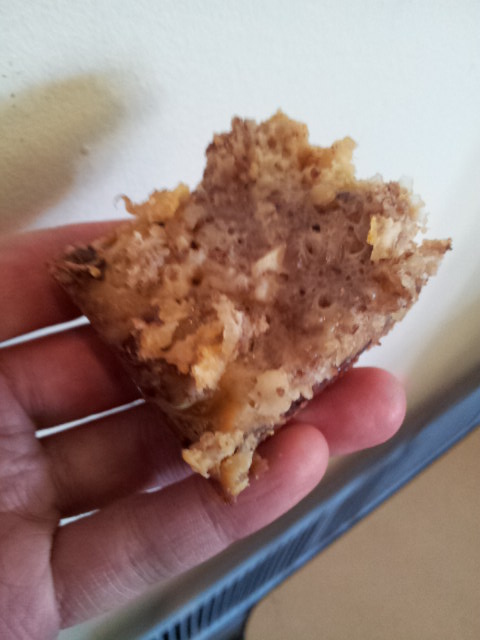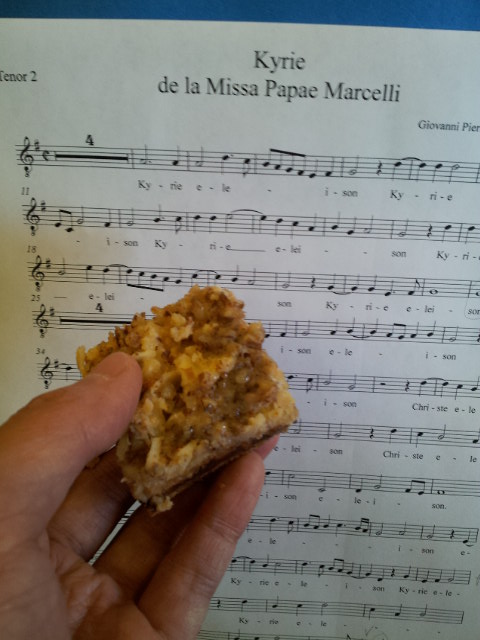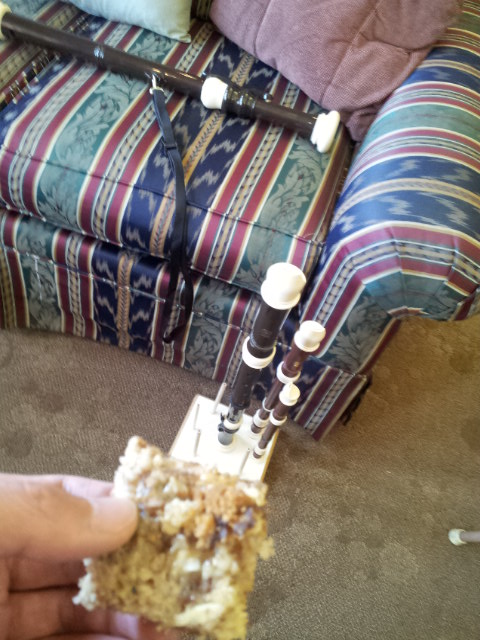Pittsburgh Recorder Society: Palestrina, Gombert, and Dolly Parton cookies
Apr 27, 2014 · 5 minute read · CommentsmusicrecorderPittsburghcookiesPalestrinaNicolas GombertJosquin des PrezPittsburgh Recorder Society
We had a great turnout again for the monthly meeting of the Pittsburgh Recorder Society. We even got an enthusiastic new member, Andriy. There were around fifteen of us, total; we really filled the room!
Our director Fred was inspirational again, encouraging and helping us to continue to refine our sound, our unity, our expression.
Every month, attending the Sunday recorder meeting is truly one of the things I look forward to most in life! Sometimes I feel emotionally naked and a bit anxious in our meetings, but I know that this is a safe place to grow and to contribute. Today was one of those days in which I really felt challenged to do my very best to make music together.
Kyrie of the “Missa Papae Marcelli” by Palestrina, revisited
Well over a year ago, we had begun work on a recorder ensemble arrangement of Palestrina’s “Kyrie de la Missa Papae Marcelli”, but had actually not picked up much on that, so I was delighted that Fred decided (especially now that we have more members) to start on this piece again.
I got a tenor 2 part and was happy to do my best to produce a rich inner voice blending it into the ensemble’s tapestry of sound. Fred emphasized that the original music did not have bar lines, and that each “Kyrie” phrase can and does begin on any beat of a “measure”, so we should focus on keeping the flow going. Of course, this being originally vocal music, I tried to “sing” on recorder, paying attention to entrances and breath control (I am still unable to last an entire breath in some of these phrases).
“Mille Regres” by Nicolas Gombert
We also started work on a recorder arrangement of “Mille Regres” by Nicolas Gombert, originally for voice.
Fred put me on the alto part and after we started playing, I realized I was the only one on the part, and felt anxious! There was nowhere to hide. It’s very different from playing on a tenor or bass part with a bunch of other people, or even when playing a part with just one other person. On the one hand, there is much more freedom, because when a voice is doubled, you have to work with someone to sound like one. Of course, you always have to blend with the rest of the ensemble, regardless, but when you’re alone, you realize that you do not have backup for your voice, that you are it. Strong entrances, making the high notes clear and rich, are totally up to you now. It’s a great responsibility and opportunity, and I felt myself focusing as deep as I could into every element of the music. After today’s first cut, I hope to continue to improve on bringing my part fully to life.
Here’s a performance of the original music for voice:
“Mille Regretz” by Josquin des Prez
It turns out that elements of this music sounded familiar to me, because in fact it is based on the French chanson “Mille Regretz” by Josquin des Prez, which I was familiar with because in last year’s Mideast early music workshop, I took a voice class in which we performed it. I really enjoyed singing it (as tenor; sorry, I don’t know if anyone has a video of our performance at the final student concert).
Here’s a nice performance of “Mille Regretz” with just one singer per part:
Another alto solo
There was another piece we started (but there were not enough scores, so I had to share with Kristel; I need to ask for a copy to be emailed to me, but for now I don’t remember the name or composer) in which Fred again put me on a solo part, which was originally marked “soprano” but after a run through, he told me to read it on alto up an octave.
This assignment made me even more anxious because I actually start out with a full statement of the melody without any accompaniment, before everyone else starts to come in. I’m not used to be put on the spot like this. But again, it’s a great opportunity to really work on refining my technique and expression, and being aware that I am setting the stage for the whole piece to succeed. Also, it’s an upbeat, rhythmic piece rather than a melancholy, lyrical one, so it was great to have the opportunity to portray different moods.
Snacks
As usual, people brought in snacks to share for the mid-meeting break.
Helen not only brought in the recipe for her delicious brownies from last month’s meeting, but also a new batch of what she called “Dolly Parton” cookies, incorporating a lot of apple in them.
The recipe for last month’s brownies:

I ate three of this month’s “Dolly Parton” squares:



Although setting a limit on three was better than no limit at all, after I got home, I did wonder whether maybe I should have limited myself to two; these were quite substantial and filling!
Conclusion
I had another intense and joyful musical afternoon with a great group of friendly and fun recorder enthusiasts.
What is your favorite role when you are on a team? Do you like being a prominent soloist, or do you prefer to blend into the background? Or do you like to switch up your roles? What do you adjust when you switch?